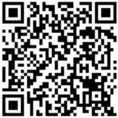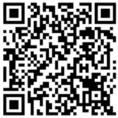川北医学院来华留学生临床医学专业(英语授课)
六年制本科人才培养方案
Undergraduate Program for 6-year Specialty of Clinical Medicine(in English Medium)for International Students in North Sichuan Medical College
一、总体培养目标
I. General Educational Objectives
培养具有扎实医学基础知识、初步临床能力和规范操作技能、良好职业素质以及终身学习能力、跨文化交流能力及全球胜任力的医学人才。
To cultivate medical talents with solid basic medical knowledge, preliminary clinical ability and standardized operation skills, good professional quality, lifelong learning ability, cross-cultural communication ability and global competence.
二、专业培养目标及业务培养要求
II. Professional Educational Objectives and Requirements
本专业来华留学生应掌握从事医疗实践工作的医学基础理论、基本知识和基本技能,具备良好的思想道德和职业态度,为毕业后教育打下坚实的基础。
Students of this specialty should master basic theory, basic knowledge and basic skills of medicine needed for medical practice and possess good morals and job attitude so as to lay a firm foundation for the continued education after graduation.
本专业来华留学毕业生应达到的基本要求分为思想道德与职业素质目标、知识目标、技能目标。
The basic requirements that the graduates of this specialty should meet includeobjectives in ideology and moral, objectives in knowledge, and objectives in skills.
思想道德与职业素质目标
Objectives in Ideology and Moral
(一)遵纪守法,树立科学的世界观、人生观、价值观和荣辱观,愿为卫生事业的发展和人类身心健康奋斗终生。
1. Conform to laws and regulations, have a right attitude to life, values and honor, be willing to devote oneself to the development of medicine and public health.
(二)珍视生命,关爱病人,具有人道主义精神;将预防疾病、驱除病痛作为自己的终身责任;将提供临终关怀作为自己的道德责任;将维护民众的健康利益作为自己的职业责任。
2. Cherish life, care for patients, possess humanitarian spirit; take prevention and treatment of diseases as lifelong responsibility; take offering hospice care as moral responsibility; take safeguarding public health benefits as professional responsibilities.
(三)树立终身学习观念,认识到持续自我完善的重要性,不断追求卓越。
3. Cultivate the concept of lifelong learning, realizing the importance of continuous self-improvement, and constantly strive for excellence.
(四)具有与病人及其家属进行交流的意识,使他们充分参与和配合治疗计划。
4. Have a sense of communication with patients and their families in order to have their full participation in and cooperation with the treatment plan.
(五)在职业活动中重视医疗的伦理问题,尊重患者的隐私和人格,尊重患者个人信仰,理解患者的人文背景及文化价值。
5. Pay more attention to medical ethics during medical practice, respect patients’ privacy and personality,understand their cultural background and cultural value.
(六)实事求是,对于自己不能胜任和安全处理的医疗问题,应该主动寻求其他医师的帮助。
6. To be honest when having medical problems which are out of one’s ability and take the initiative to seek help from other physicians.
(七)尊重同事和其他卫生保健专业人员,有集体主义精神和团队合作开展卫生服务工作的观念。
7. Pay due respect for colleagues and other health care professionals and have group spirit and teamwork in health services.
(八)依法行医,学会用法律保护病人和自身的权益。
8. Practice medicine in conformity with the law and protect the right and interests of patients and medical practitioners legally.
(九)在应用各种可能的技术去追求准确的诊断或改变疾病的进程时,应考虑到病人及其家属的利益,并注意发挥可用卫生资源的最大效益。
9. In the application of various possible technologies to the pursuit of accurate diagnosis or changing the course of a disease, take into account the interests of patients and their families, and pay attention to bringing out the maximum effectiveness of available health resources.
(十)具有科学态度、创新和分析批判精神。
10. To have a scientific, innovative and analytically critical spirit.
(十一)履行维护医德的义务。
11. To uphold medical ethics
知识目标
Objectives in Knowledge
(一)掌握基本汉语知识,了解中国概况。
1.To master basic Chinese knowledge and understand the general situation of China.
(二)掌握与医学相关的生命科学、行为科学和社会科学等基础知识和科学方法,并能用于指导未来的学习和医学实践。
2. To master the basic knowledge and scientific methods of life science, behavioral science and social science related to medicine, and being able to apply them to guide future study and medical practice.
(三)掌握生命各阶段的人体的正常结构和功能,正常的心理状态。
3. To know the normal structure and function of the human body, the normal mental state at different stages of life.
(四)掌握生命各阶段各种常见病、多发病的发病原因,认识到环境因素、社会因素及行为心理因素对疾病形成与发展的影响,认识到预防疾病的重要性。
4. To understand the causes of a variety of common diseases and frequently occurring diseases, the influences of environmental, social and psychological factors on the formation and development of diseases, the importance of the prevention of diseases.
(五)掌握生命各阶段各种常见病、多发病的发病机理、临床表现、诊断及防治原则。
5. To understand the pathogenesis, clinical manifestation, diagnosis, prevention and treatment of common diseases and frequently occurring diseases at different stages of life.
(六)掌握基本的药理知识及临床合理用药原则。
6. To have the basic pharmacological knowledge and principles of clinical drug use.
(七)掌握正常的妊娠和分娩、产科常见急症、产前及产后的保健原则,以及计划生育的医学知识。
7. To master the principles of normal pregnancy and childbirth, common emergency, prenatal and postnatal care, and the medical knowledge of family planning.
(八)掌握全科医学基本知识,掌握健康教育、疾病预防和筛查的原则,掌握缓解与改善疾患和残障、康复以及临终关怀的有关知识。
8. To master the basic knowledge of general medical science, the principles of health education, disease prevention and screening, the relevant knowledge of alleviating diseases and disability, rehabilitation and hospice care.
(九)掌握流行病学的有关知识与方法,理解科学实验在医学研究中的重要作用。
9. To master the knowledge and methods of clinical epidemiology and understand the important role of scientific experiments in medical research.
(十)掌握传染病的发生、发展以及传播的基本规律,掌握常见传染病的防治原则。
10. To understand the basic rules of the occurrence, development and spread of infectious diseases and the principles of prevention and treatment of common infectious diseases.
(十一)了解中国传统医学的基本特点和中医的辩证论证原则,树立整体观念。
11. To understand the basic characteristics and the basic principles of diagnosis and treatment of Chinese traditional medicine (National Medicine).
技能目标
Objectives in Skills
(一)全面、系统、正确地采集病史的能力。
1. To have the ability of comprehensive, systematic and correct collection of medical history.
(二)系统、规范地进行体格及精神检查的能力,规范书写病历的能力。
2. To have the ability of carrying out systematic and standard physical and mental examination and the ability of writing medical records.
(三)较强的临床思维和表达能力。
3. To have good ability of clinical thinking and expression.
(四)内、外、妇、儿各类常见病、多发病的诊断、处理能力。
4. To have the ability of diagnosing and treating common and frequently occurring diseases in internal medicine, surgical, gynecologic and pediatric departments.
(五)一般急症的诊断、急救及处理能力。
5. To have the ability of diagnosis, first aid and treatment in general emergency.
(六)根据具体情况选择使用合适的临床技术,选择最适合、最经济的诊断、治疗手段的能力。
6. Be able to choose the appropriate clinical technology, the most suitable, the most economical way to diagnose and treat diseases according to the specific situation.
(七)从事社区卫生服务的基本能力。
7. To have the basic ability of engaging in community health services.
(八)具有与病人及其家属进行有效交流的能力。
8. To have the ability to communicate effectively with patients and their families.
(九)具有与医生、护士及其他医疗卫生从业人员交流的能力。
9. To have the ability to communicate with doctors, nurses and other health professionals.
(十)结合临床实际,能够独立利用图书资料和现代信息技术研究医学问题及获取新知识与相关信息,能基本用中文阅读医学文献。
10. To be able to study medical problems and acquire new knowledge and relevant information related to clinical practice independently by using books and materials and modern information technology. Be able to read Chinese medical materials and journals.
(十一)能够对病人和公众进行有关健康生活方式、疾病预防等方面知识的宣传教育。
11. To be able to educate patients and the public about healthy life style and disease prevention.
(十二)具有自主学习和终身学习的能力。
12. To have the ability of independent learning and lifelong learning.
三、学制与学位
III.Schoolsystem and degree
(一)学制:六年,实行灵活学习年限,最长八年。不可抗力因素除外。
1. Basic system (duration) is 6 years, plus flexible system, maximal duration is 8 years.Force majeure is excluded.
(二)学位授予:符合国家教育部和我校学位相关规定者,经学校学位评定委员会审定通过,授予医学学士学位。
2.Degree: Those who meet the degree requirements of the Ministry of Education in China and the relevant provisions of NSMC and are approved by the degree assessment committee can be awarded a bachelor's degree in medicine.
四、主干学科与核心课程
IV.Major Disciplines and Core Courses in Specialty
(一) 主干学科:基础医学、临床医学
1.Major Disciplines:Preclinical medicine, Clinical medicine
(二)核心课程:人体解剖学、组织学和胚胎学、病理学、生物化学、生理学、医学免疫学、医学微生物学与寄生虫学、药理学、医学诊断学、内科学、外科学、妇产科学、儿科学。
2.Core Courses in Specialty: HumanAnatomy, Histology and Embryology, Pathology, Biochemistry, Physiology, Medical Immunology, Medical Microbiology & Parasitology , Pharmacology, Medical Diagnostics, Internal Medicine, Surgery, Gynecology and Obstetrics, Pediatrics.
五、主要实践教学环节(含专业实验)
V.Main PracticalTeachingand Training (Including experiments)
基础医学实验、临床医学实验、临床见习、毕业实习。
Preclinical and clinical experiments, hospital visits and clinical Internship.
六、成绩考核与毕业要求
VI. Performance Assessment, Graduation Requirements
(一)成绩考核:所学课程均需进行考核,具体按照《川北医学院留学生学籍管理规定》和《川北医学院留学生实习手册》的有关规定。
1.Performance appraisal: All subjects taught need assessment, specified by the relevant provisions of the “Rules of Study Management for International Students of North Sichuan Medical College"and "North Sichuan Medical College International students Internship Handbook".
(二)汉语水平:临床实习前汉语能力必须达到HSK四级。
2.Chinese level: The Chinese ability must reach HSK level 4 before clinical internship.
(三)毕业要求:临床医学MBBS专业本科留学生在校期间通过本培养方案规定的全部教学环节,完成教学计划规定的最低学分,毕业考试合格者,准予毕业。完成学业最低学分为284.5学分,包括课内学分279.5分(其中必修课222.5分,集中性实践教学环节54分,任意选修课程至少3分),第二课堂学分5分。毕业考核模式包括综合理论考试和临床技能考试。
3.Graduation requirements: Undergraduate students of clinical medicine MBBS major are allowed to graduate if they pass all the teaching contents specified in this training program,complete the minimum credits specified in the teaching plan and pass the graduation examination. The minimum credits are284.5credits, including279.5in class credits (including222.5for compulsory courses, 54for centralized practical teaching links, and at least 3 for optional courses) and 5 credits of the second classroom. The graduation examination mode includes comprehensive theory examination and clinical skill examination.
七、说明
VII.Notes
(一)此方案是遵照《学校招收和培养国际学生管理办法》(2017年3月20日教育部、外交部、公安部第42号令)、《来华留学生高等教育质量规范(试行)》(教外〔2018〕50号)、《中国本科医学教育标准—临床医学专业》(2008版、2016版)、2018年《普通高等学校本科专业类教学质量国家标准》、2020年4月《来华留学生临床医学专业本科教育(英语授课)质量控制标准》等文件要求,参照中国学生的教育标准、生源国印度的全印度医学科学研究所发布的《Syllabus MBBS at the AIIMS》(MBBS课程大纲)的要求、川北医学院人才培养方案(2020版)的基础上,依据我校人才培养目标而制定。
1.This Undergraduate Program is in accordance with the《Administrative Measures of the University for the Recruitment and Training of International Students》(Order No. 42 of the Ministry of Education, the Ministry of Foreign Affairs and the Ministry of Public Security on March 20, 2017), the《Quality Standards of Higher Education for Foreign Students in China (Trial)》(Jiao Wai [2018] No. 50), the《Medical Education Standards for Undergraduate Students in China - Clinical Medicine》(2008, 2016), the《National Standards for the Teaching Quality of Undergraduate Majors in Ordinary Colleges and Universities》in 2018,the《Quality Control Standards for Undergraduate Education (English Teaching) of Clinical Medicine for International Students in China》(April 2020), and other documents,based on the education standards of Chinese students, the requirements of《Syllabus MBBS at the AIIMS》(MBBS syllabus) issued by the All India Institute of Medical Sciences in India, the source country of students, and the《Talent training program of North Sichuan Medical College》(2020 version).
(二)在课程改革中,注重形态学科课程应以减少讲授、增加实验为主;机能学课程应削减验证性实验,增加综合性实验,提高动手能力;临床课程应减少理论讲授,增加床边教学,以适应国内外医学教育改革和发展的趋势。
2. In the curriculum reform, in the morphology courses, theory teaching should be reduced while experiment should be increased. Function experimentation teaching should cut verification experiments and increase comprehensive experiments, improving the practical ability. Clinical courses should reduce theory teaching and increase bedside teaching.
(三)教学内容分课内和课外教学,课内教学形式包括大课、小课(讨论课、案例教学等)、实验课、见习、实习等;课外教学是指学生通过课外自主学习、社会实践等形式学习教学大纲要求的教学内容(不包括学生复习)。
3. Teaching consists of curricular teaching and extracurricular teaching. Curricular teaching includes large classes, small class, case teaching, discussion, experiment teaching, hospital visits, internships, etc. Extracurricular teaching refers to the students self-learning, social practice and other forms of learning required by the syllabus (not including the student review).
(四)选修课程的开设是为了加强学生个性培养,拓宽知识面,学生可根据自己的兴趣、爱好、学习进程进行选择,且完成相应课程类别所要求的选修课程学分。
4. Elective courses are to strengthen students' individuality, broaden their knowledge. Students can choose courses according to their interests, hobbies, learning process and complete the corresponding courses required.





